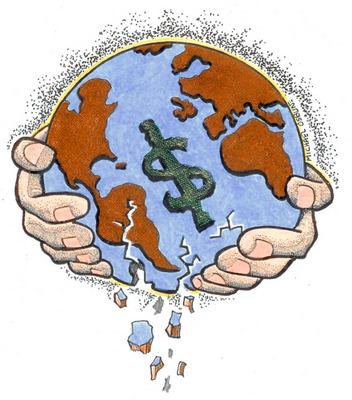- MENU
- HOME
- SEARCH
- WORLD
- MAIN
- AFRICA
- ASIA
- BALKANS
- EUROPE
- LATIN AMERICA
- MIDDLE EAST
- United Kingdom
- United States
- Argentina
- Australia
- Austria
- Benelux
- Brazil
- Canada
- China
- France
- Germany
- Greece
- Hungary
- India
- Indonesia
- Ireland
- Israel
- Italy
- Japan
- Korea
- Mexico
- New Zealand
- Pakistan
- Philippines
- Poland
- Russia
- South Africa
- Spain
- Taiwan
- Turkey
- USA
- BUSINESS
- WEALTH
- STOCKS
- TECH
- HEALTH
- LIFESTYLE
- ENTERTAINMENT
- SPORTS
- RSS
- iHaveNet.com
by Ian Bremmer

In 2003, a report authored by a team of
Their growing international leverage is real. In 2000, the BRICs accounted for 16 percent of global GDP. Today, their share is 22 percent, and that number is expected to rise sharply in years to come. The impact of the financial crisis and global recession on developed world economies has only magnified their importance.
Over time, the BRICs will exert more political influence, and their governments will cooperate on the (very few) issues that serve the interests of all four countries more or less equally. For example, the BRICs mean to increase their formal and informal influence within the
But the BRICs won't form a coherent bloc anytime soon, because considerable differences in their respective strengths, weaknesses and interests will limit their willingness to cooperate on the issues they say they care about.
Their differences are considerable. China and India are rebounding strongly from the global slowdown. The outlook for Brazil remains positive, if sluggish. Russia, on the other hand, may be in for a turbulent autumn. China's economy reportedly grew by almost 8 percent for the second quarter. Russia's contracted by more than 10 percent over the first half. This divergence in their economic performances will limit any convergence in their economic agendas.
Much of the divergence is explained by sharp differences in the structures of their economies. Russia and Brazil, which earn considerable cash from the export of energy and other commodities, would like their prices to rise. China and India, increasingly voracious consumers of these resources, want to see commodity prices fall. This limits the willingness within the group to agree on any initiative that would push oil and gas prices hard in either direction.
There are also important differences in their approaches to the United States. Russia is by far the group's most outspoken critic of U.S. foreign and economic policy. China and Brazil, which have much greater direct exposure to the U.S. economy, are more cautious. India's relations with Washington have warmed considerably in recent years, and its government won't join any effort to give the alliance an anti-U.S. focus.
Nor will they agree anytime soon on concrete steps to replace the dollar as the world's reserve currency. Russia has been much more outspoken than the others on the need to create a new "supranational" unit of exchange. Chinese central banker Zhou Xiaochuan recently proposed the formation of a global currency based on IMF Special Drawing Rights. But Chinese President Hu Jintao and Premier Wen Jiabao have given no indication that they plan to ignore China's massive exposure to dollar-denominated instruments.
Luiz Inacio Lula da Silva's Brazilian government generally favors the idea of reducing the dollar's status as a reserve currency, but his comments on the subject are designed to please Russia and China more than to outline a workable plan. India has indicated very little interest in this question, and the summit's final communiqué made no mention of it.
On trade, Brazil's energetic embrace of the Doha round contrasts with India's much greater skepticism, though the recently re-elected
Nor should we overlook the longstanding rivalries within the group. China and India, though their relations are much improved, remain regional competitors, particularly in the Indian Ocean. Beijing resolutely opposes any near-term Indian bid to claim a permanent seat on the
Over time, the BRICs will exert increasing influence on global financial and political institutions. Their economies will continue to account for a sizeable portion of the increase in global GDP, and their political influence will grow as a result. But there will always be clear limits on the compatibility of their interests and the coherence of any collective plans. Critics of
(Ian Bremmer is president of
WORLD | AFRICA | ASIA | EUROPE | LATIN AMERICA | MIDDLE EAST | UNITED STATES | ECONOMICS | EDUCATION | ENVIRONMENT | FOREIGN POLICY | POLITICS
Working Together, Brazil, Russia, China and India Increase Leverage